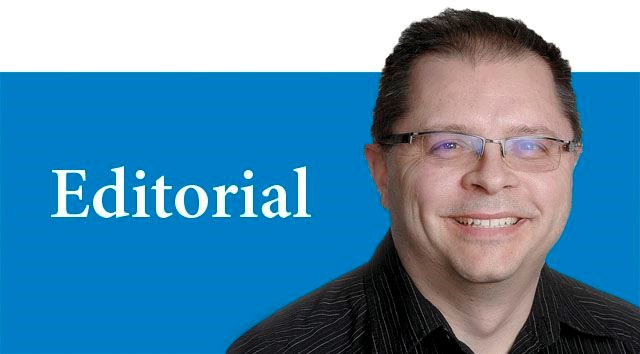The week isn't even over yet and Justin Trudeau has taken two great strides towards making sure he will win a second term as prime minister.
Eulogizing Fidel Castro so enthusiastically will endear Trudeau to a wide swath of left-leaning Canadians willing to forgive Castro's crimes (see Vivien Lougheed's guest editorial in Wednesday's Citizen) as necessary excesses to keep down the American-sponsored right-wing extremists.
Approving two major oil pipelines from Alberta will earn him some kudos from small-c conservatives across Canada for focussing on jobs and the economy while telling the environmentalists to go - pun intended - pound sand.
Politically, Trudeau's path to victory in 2019 or 2020 is simple.
He and the federal Liberals are working hard to occupy so much of the centre of the political spectrum that whomever replaces Rona Ambrose and Tom Mulcair must criticize from the fringes to the left and right.
Historically, his father, as well as Jean Chretien, were masters of this tactic.
In the present, the Trudeau Liberals are now moving on a parallel political trajectory with Christy Clark's B.C. Liberals.
Both Clark and Trudeau have gone to great lengths, in word and deed, to show a steadfast commitment to both the economy and environment.
They both believe in climate change and favour a tax on carbon emissions.
They both have taken significant steps to preserve and protect sensitive lands and waters. They also believe in a growing economy, jobs and prosperity through carefully-regulated natural resource developments.
Most of all, they are both following the tried-and-true political philosophy that the key to election day victories is painting their opponents as extremists and portraying themselves as rational, reasonable moderates.
With Trudeau it's sunny ways, and with Clark it's getting to yes, but both mantras are about making the majority of voters happy and caring little for the ideologues on both sides who will always despise and dismiss them.
Unless there is a powerful movement for radical political change, this is always the safest and most reliable election strategy.
Using that template, even the name of the party is irrelevant, so long as voters can accept the leader.
Albertans elected an NDP government out of anger at the long-governing Progressives Conservatives but even Rachel Notley can win a second term by showing she can work with Clark and Trudeau, as well as with the business sector, particularly in oil and gas, to get Alberta back on its fiscal feet.
Unlike John Horgan, B.C.'s NDP leader, she doesn't need to worry about being outflanked on the left.
Notley is simply the only progressive option Alberta has, so she simply has to nudge her party into the centre and leave the Conservatives and the Wildrose with their hard-right views, a non-starter among Alberta's urban population.
Challenging her on ideological grounds will doom both of those parties to more years in opposition.
Ironically, Notley's politics are far more in line with traditional NDP policy. The NDP, both provincially and nationally, gained political support by focussing on the little guy, the common man, as it were.
The early NDP was pro-business and pro-development, so long as business paid fair wages to workers, high taxes to support government programs and were socially responsible.
The environmentalists hijacked the federal NDP, as the Leap Manifesto made abundantly clear, and the B.C. NDP, as Adrian Dix's Earth Day rejection of Kinder Morgan during the 2013 election (the "Kinder surprise") showed. The NDP still enjoys broad union support but unionized workers, particularly in the trades, have taken their votes to the Liberals provincially and federally (and even as far Stephen Harper's Conservatives before Trudeau).
Put another way, pipe fitters, welders, electricians and engineers care about the environment, too, but they like to feed their families. Telling them their jobs are aiding and abetting the planet's destruction simply forces them into the waiting and welcoming arms of Trudeau and Clark, all but guaranteeing continued success at the ballot box.
-- Managing editor Neil Godbout



